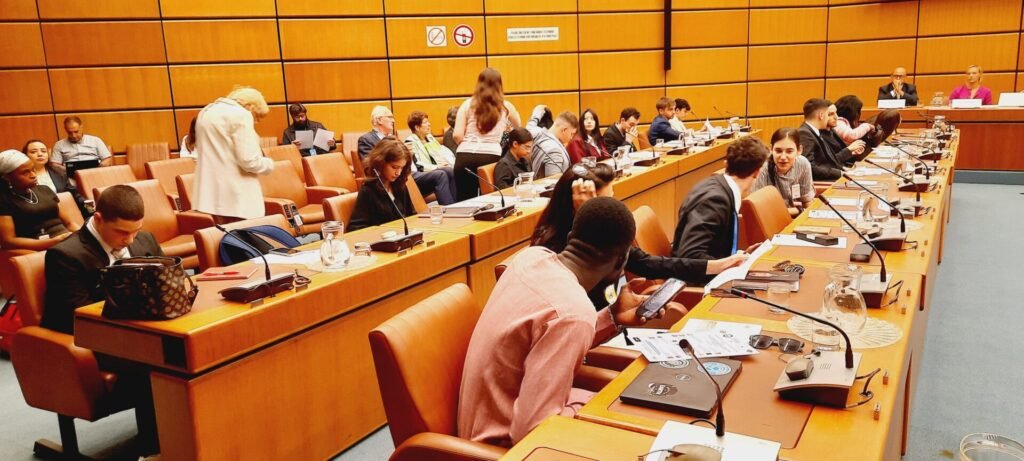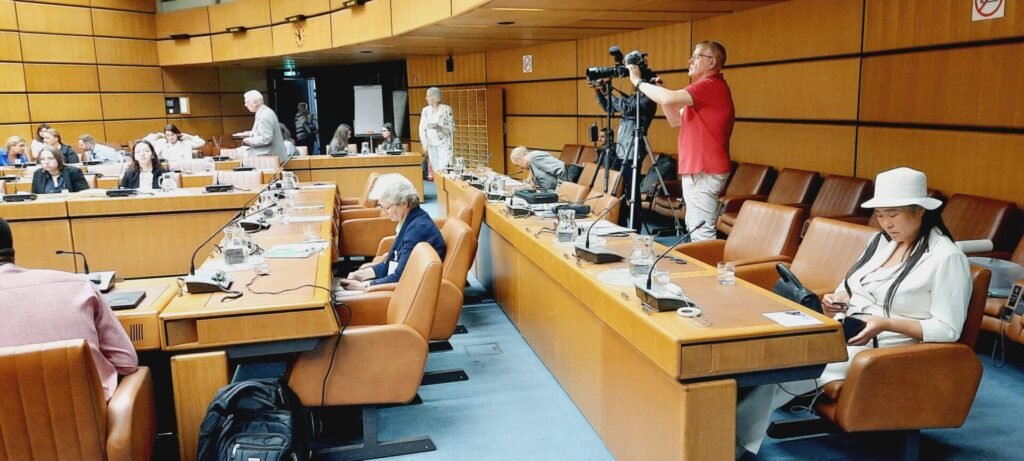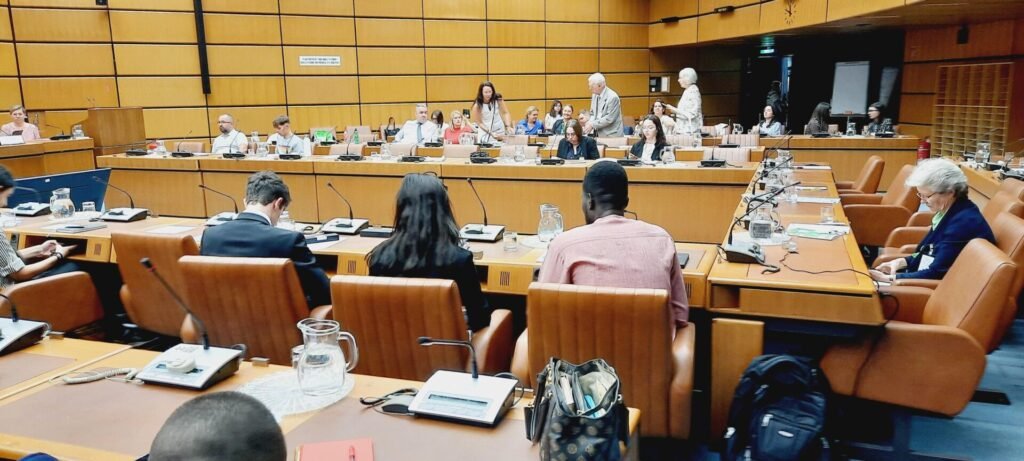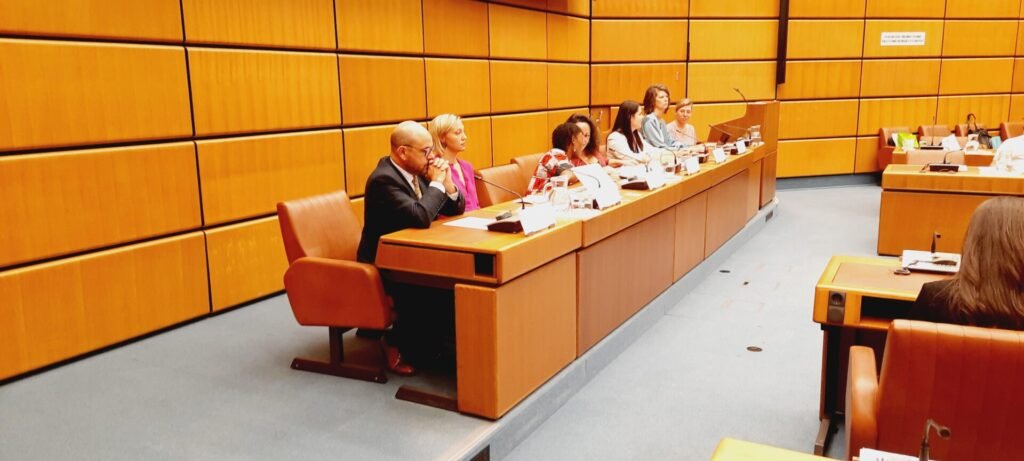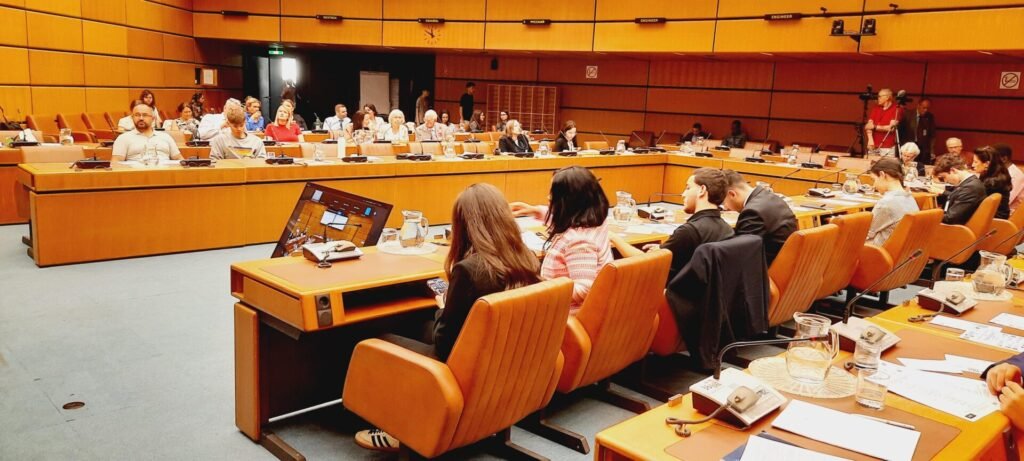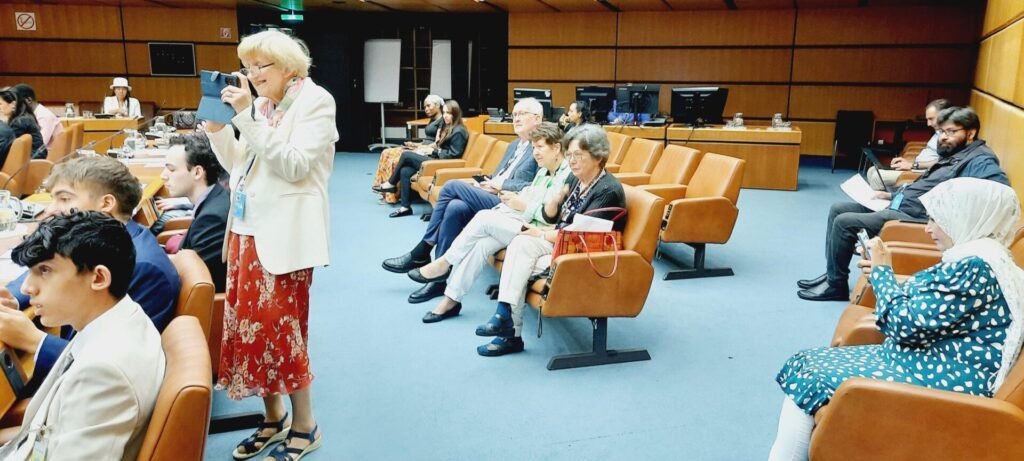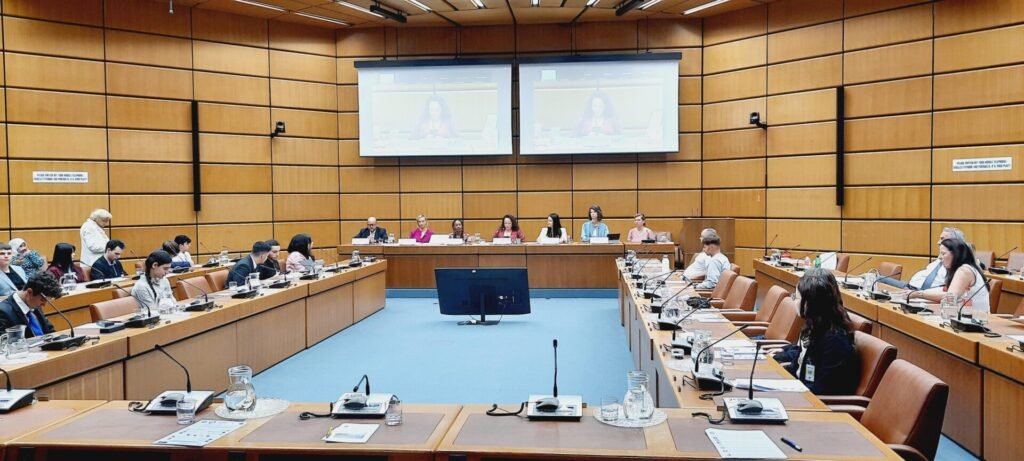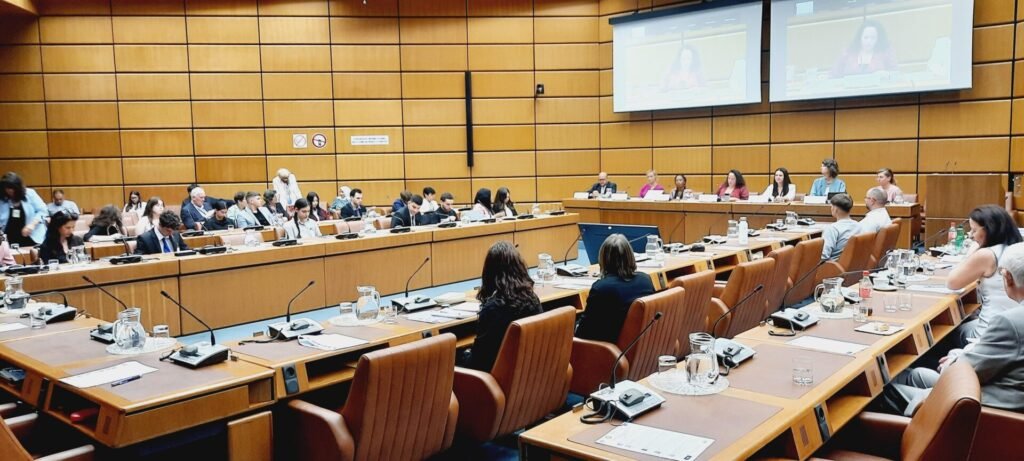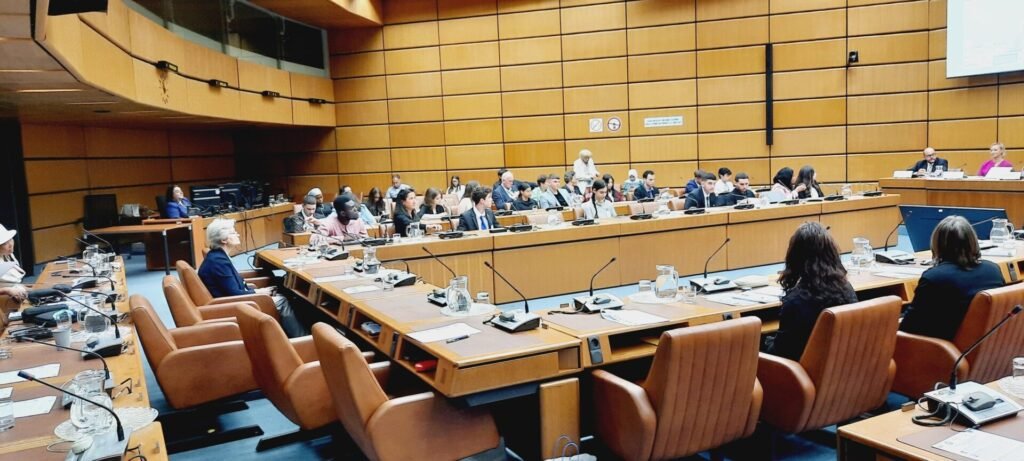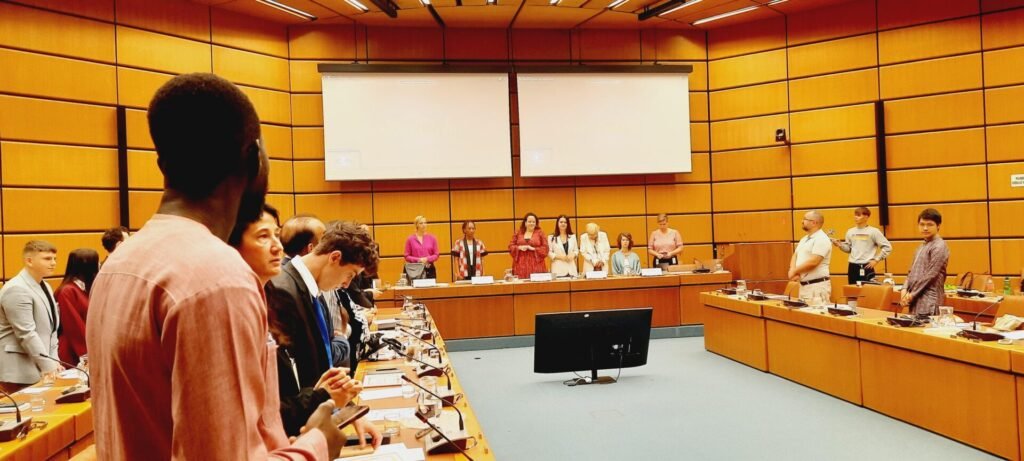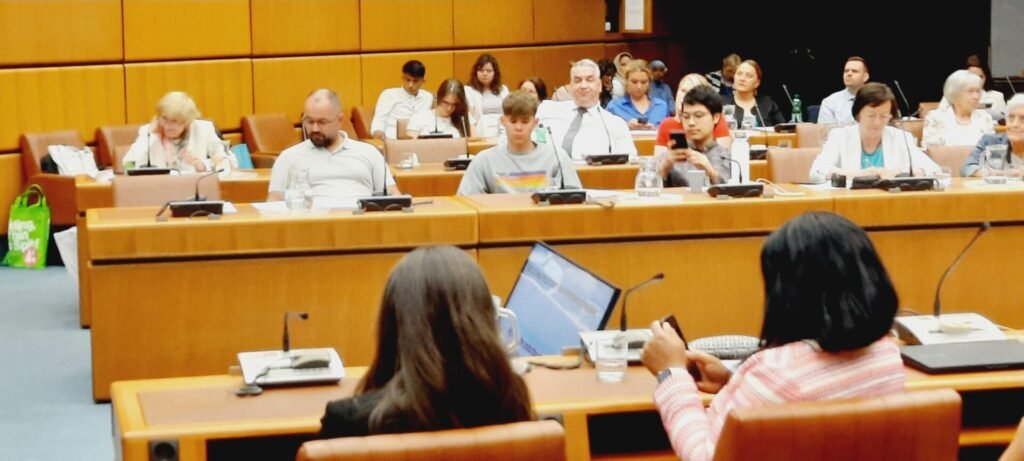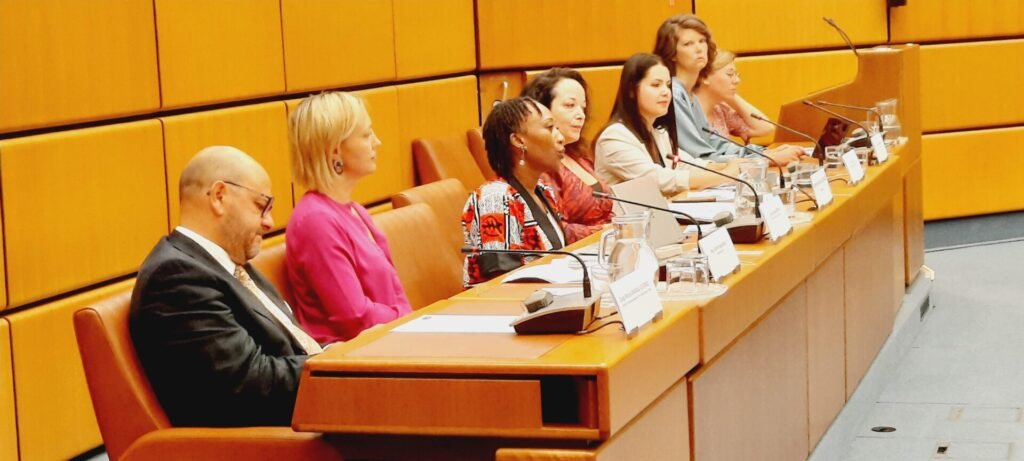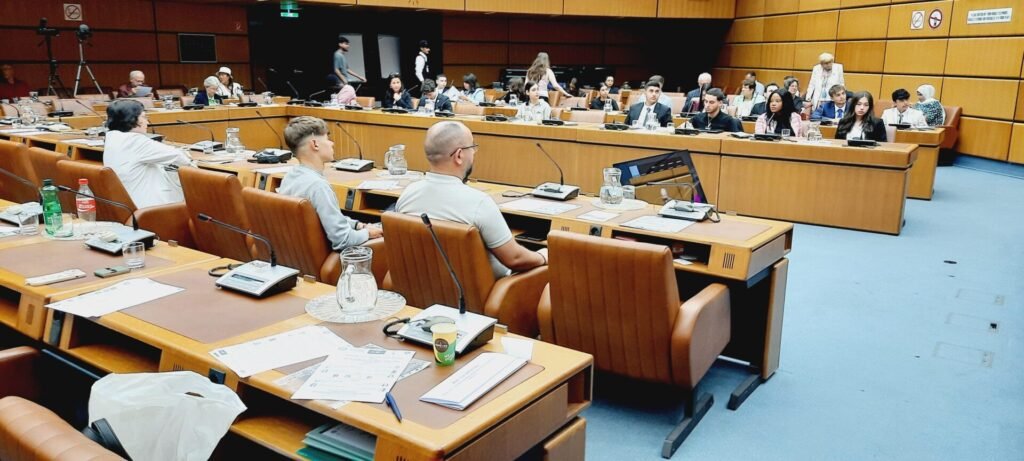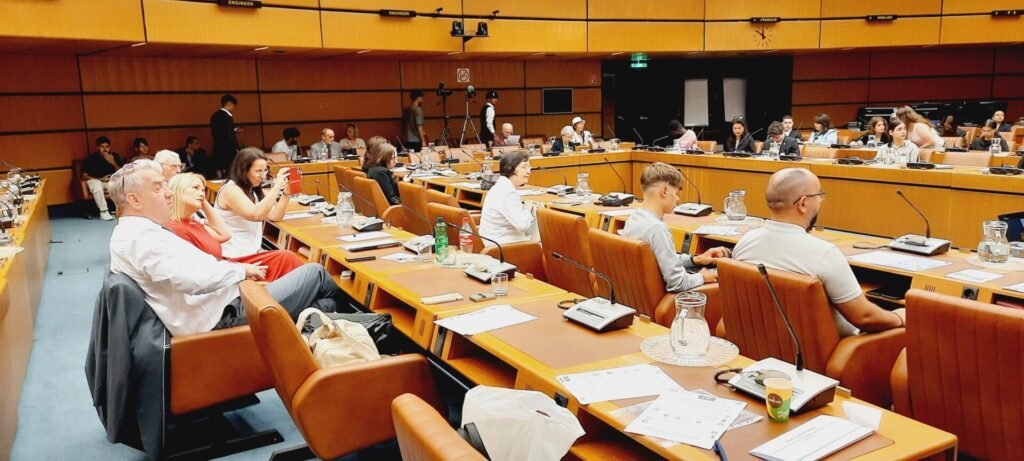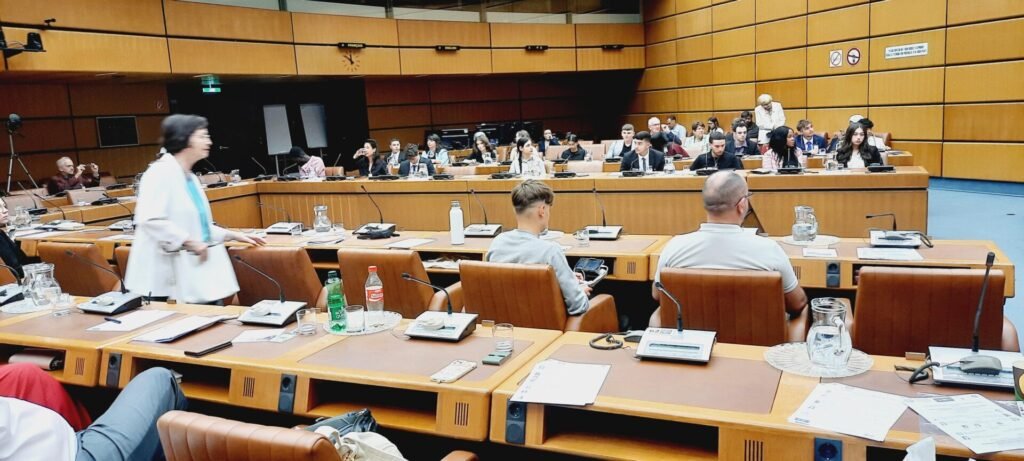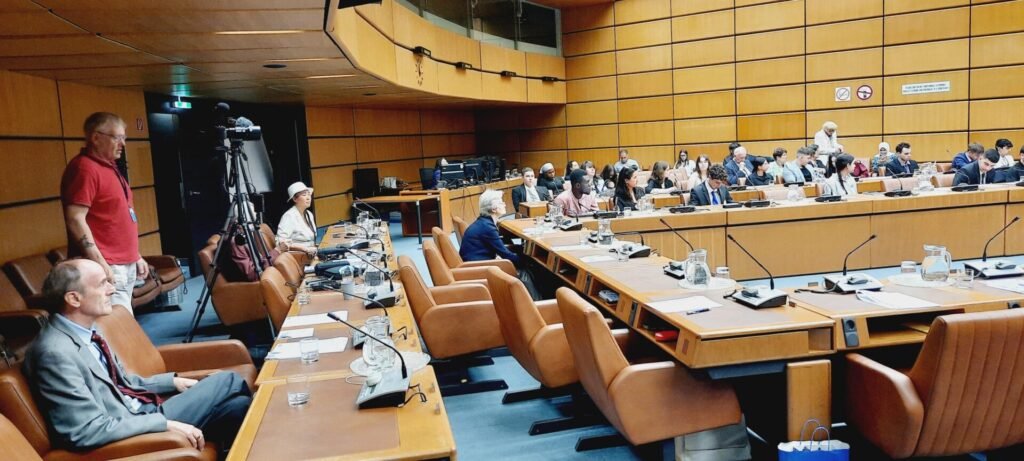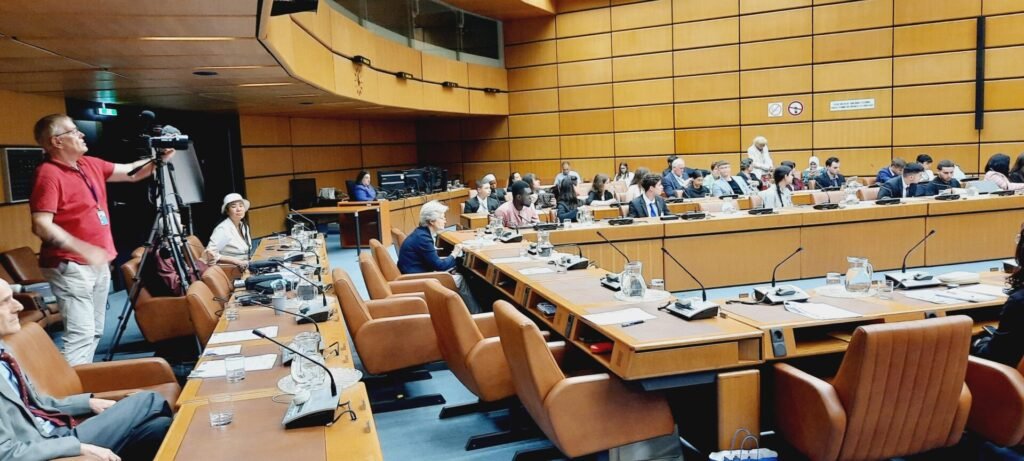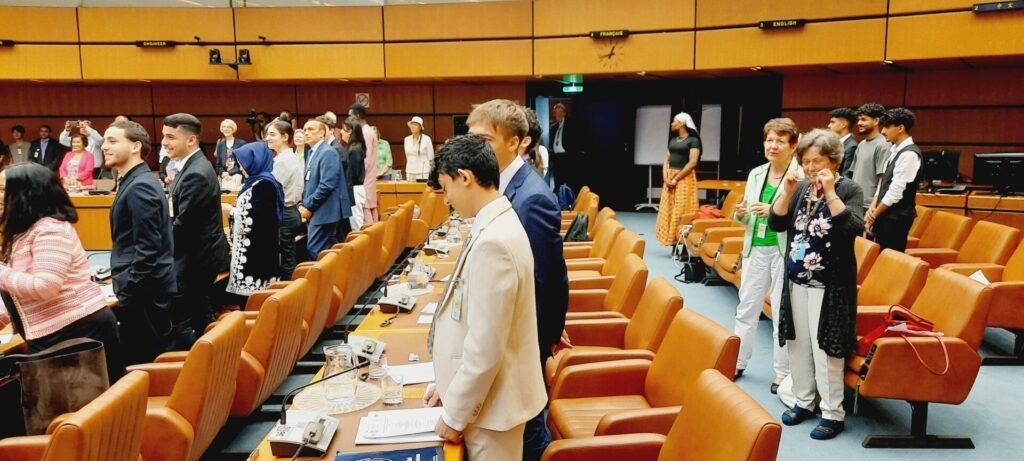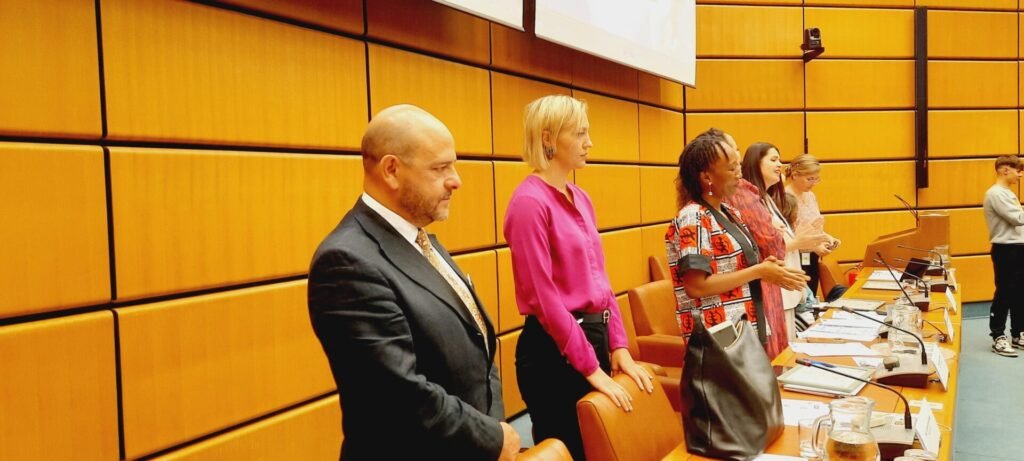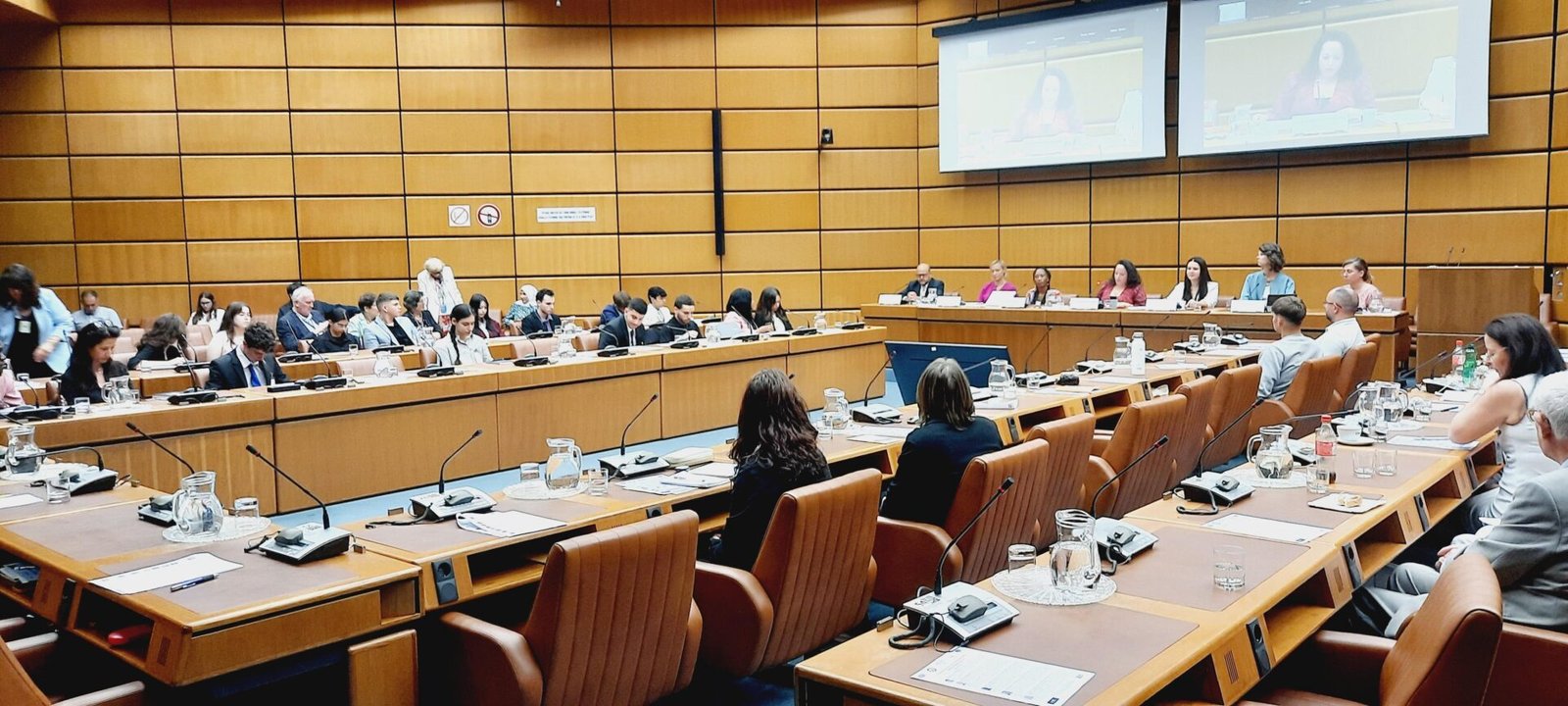Event Overview
On August 7, 2023, the Women’s Federation for World Peace (WFWP) organised a significant event titled “Sustainable Peace Starts Now – With Education” at the United Nations headquarters in Vienna. The event took place in room CR 7, a venue that reflects the global commitment to fostering discussions that contribute to international peace and security. The location was particularly chosen due to the United Nations’ longstanding mission to promote sustainable development and implement approaches that lead to peaceful societies.
The primary aim of the event was to explore the pivotal role education plays in achieving Sustainable Development Goal 16 (SDG 16), which focuses on promoting peaceful and inclusive societies, ensuring access to justice for all, and building effective, accountable institutions. Participants included educators, policymakers, and advocates who brought diverse perspectives on the intersections between education and peacebuilding. Throughout the discussions, emphasis was placed on innovative educational strategies that not only enhance knowledge but also foster values of tolerance, cooperation, and conflict resolution.
This gathering provided a platform for stakeholders to share their insights on how educational initiatives can be structured to address the root causes of conflict and violence. As education is recognized as a fundamental human right, the conversations highlighted its transformative power in creating social cohesion and stability in communities worldwide. Moreover, the discussions underscored that sustainable peace cannot thrive without comprehensive educational frameworks that cater to the needs of all members of society.
In essence, this event served as a reminder of the critical connection between education and the promotion of a peaceful world while aligning closely with the United Nations’ broader agenda for sustainable development. By delving into these themes, WFWP reinforces the commitment to fostering dialogues that emphasize education as a cornerstone for lasting peace.
Keynote Speakers and Their Insights
During the seminar on the pivotal role of education in promoting sustainable peace, a range of distinguished keynote speakers provided invaluable insights anchored within the framework of Sustainable Development Goal 16 (SDG 16). These speakers, each with diverse backgrounds and expertise, addressed the pressing intersections between education, peace, and sustainable development.
One prominent speaker, Dr. Maria Gonzalez, an esteemed educator and advocate for social justice, emphasized the transformative power of education in conflict-affected regions. Her presentation highlighted how access to quality education can serve as a catalyst for long-term peacebuilding efforts. Dr. Gonzalez shared compelling case studies illustrating how educational programs facilitate dialogue among divided communities. By increasing awareness and understanding, education fosters a shared culture of respect and tolerance, essential components for sustainable peace.
Another influential voice was Professor James Liu, a renowned scholar in international relations and conflict resolution. His insights focused on the need for integrating peace education into formal curricula worldwide. He argued that peace education is not merely an ancillary element but a foundational necessity that equips future leaders with the skills to navigate conflicts non-violently. Professor Liu’s recommendations on designing culturally relevant peace education curricula resonated strongly with attendees, underscoring the critical role of context in effective education initiatives.
Moreover, Ms. Amina Hayes, a youth advocate and founder of a national organization for educational access, shared her experiences working with marginalized youth. She spoke passionately about the importance of inclusivity in educational programs and how engaging young people in peace dialogues not only empowers them but also builds resilient communities. Her testimony served as a reminder that the youth have the potential to become powerful agents of change through education.
The insights shared by these speakers created a rich tapestry of perspectives on education’s invaluable role in fostering sustainable peace, illustrating the necessity of collaborative efforts in achieving SDG 16.
Objectives and Themes of the Event
The event primarily focused on the interconnectedness of education and sustainable peace, as articulated in Sustainable Development Goal 16 (SDG 16). One of the primary objectives was to explore how education serves as a potent instrument in promoting peaceful societies. By fostering critical thinking, empathy, and social cohesion, education can help mitigate conflicts and nurture cultures of peace. The discussions underscored the need to integrate peace education into curricula, equipping students with the emotional and social skills necessary to navigate and resolve conflicts effectively.
Another significant theme was the recognition of challenges in achieving peace through education. The panel speakers identified systemic barriers that hinder educational access, especially in conflict-affected regions. Issues such as economic instability, political unrest, and social inequality often impede educational initiatives. The event highlighted the urgent necessity for stakeholders, including governments, NGOs, and educational institutions, to collaborate on creating resilient systems that prioritize educational access for all individuals. By addressing these challenges holistically, the potential of education as a tool for sustainable development and peace can be realized.
The discussions also emphasized the broader impact of educational initiatives on global peace efforts. Education can influence not just individual lives but also societal structures and international relations. By cultivating an informed citizenry, education can facilitate dialogue about peace and justice, fostering an environment conducive to conflict resolution. The event culminated in a call to action, encouraging participants to advocate for policies that prioritize educational funding and innovative approaches to learning as critical components in achieving SDG 16. The overarching message was clear: achieving lasting peace hinges on our commitment to education as a fundamental human right and a cornerstone for sustainable development.
Call to Action: Implementing Educational Strategies for Peace
To achieve Sustainable Development Goal 16, which aims to promote peaceful, just, and inclusive societies, proactive steps must be taken by individuals, organizations, and governments alike. Education emerges as a crucial instrument in this quest for lasting peace. It is essential for decision-makers at all levels to recognize the transformative power of education in fostering a culture of peace, respect, and mutual understanding.
Individuals can start by advocating for inclusive educational practices that emphasize peace education, conflict resolution, and critical thinking. Engaging in local community discussions can promote awareness of the importance of incorporating these elements into the curriculum. By participating in workshops and forums, individuals can become proactive voices in their communities, encouraging parents, educators, and students to prioritize peace-oriented education.
Organizations, particularly non-profits and educational institutions, should align their missions with the principles of sustainable peace by developing programs that focus on social cohesion and integration. Collaborating with schools to create safe and nurturing learning environments can help mitigate conflicts before they escalate. Furthermore, these organizations should explore partnerships with local and international stakeholders to enhance their educational frameworks, ensuring that peace-building is a shared responsibility.
Governments must also take the lead by implementing policies that recognize the role of education in promoting sustainable peace. This could include reforming educational systems to incorporate peace education as a core component of the academic curriculum. Investment in teacher training programs that focus on peace-building, human rights, and social justice is essential to prepare educators to effectively deliver this content. Moreover, creating laws that facilitate equitable access to quality education for all citizens, especially marginalized groups, will further strengthen peace efforts in society.
Collectively, these actions can create a solid foundation for lasting peace. It is imperative that all stakeholders engage actively with the call for educational reform, ensuring that peace education occupies a central place in our global pursuit of justice and stability.
